Rigid transformations always produces images that are WHAT to the pre-image?
CONGRUENT
Identify the transformation below.
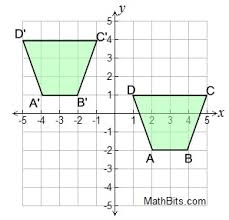
Translation by DLS from C to C'.
In a translation, the direct line segments that map points on the pre-image to their corresponding points on the image are all ________________ to each other.
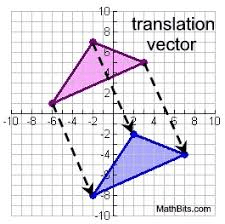
Parallel
What are the three types of rigid transformations?
translations, reflections, and rotations
The given graph depict multiple transformations of the pre-image *. This image depicts a Reflection of * across the y-axis.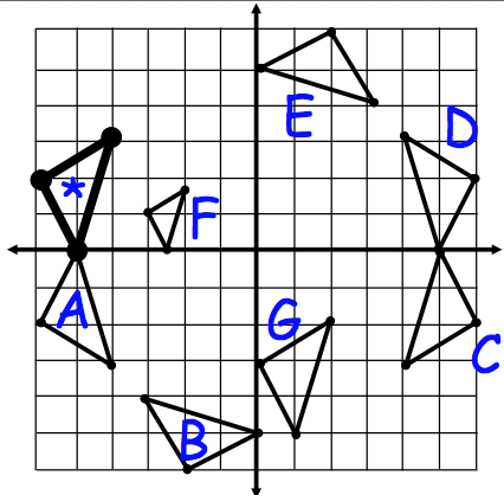
figure D
Three things you need to define a rotation are...
Center of rotation
Angle of rotation
Direction of rotation
What is the notation(symbol) used to differentiate the IMAGE from the PRE-IMAGE?
prime or '
pre-image image
A A'
B B'
Triangle ABC Triangle A'B'C'
The given graph represents transformations of the pre-image *. This figure depicts a Rotation of the pre-image 180 degrees about the origin.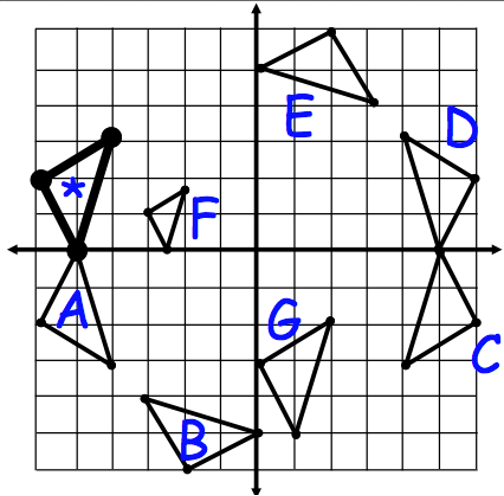
figure C
It's the triangle in the picture below that is a 90 degree counterclockwise rotation of triangle A.
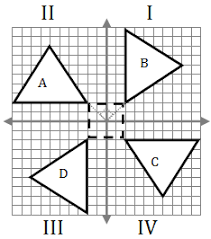
What is triangle D?
Which rotation results in the same location whether it is done clockwise or counter-clockwise?
180o
The given graph depicts rigid transformations of the pre-image *. This triangle represents a rotation of * 90-degrees counterclockwise about the origin. 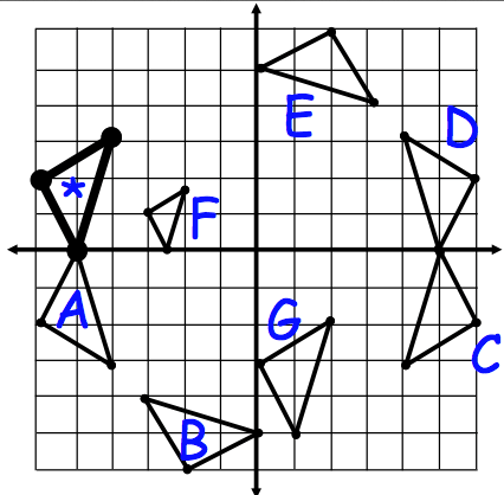
figure B
In the image below, the segments that connect each point with it's image, all share this same relationship to the line of reflection.
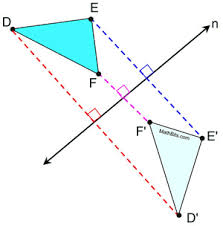
Perpendicular to line of reflection
What color is the image in this reflection? 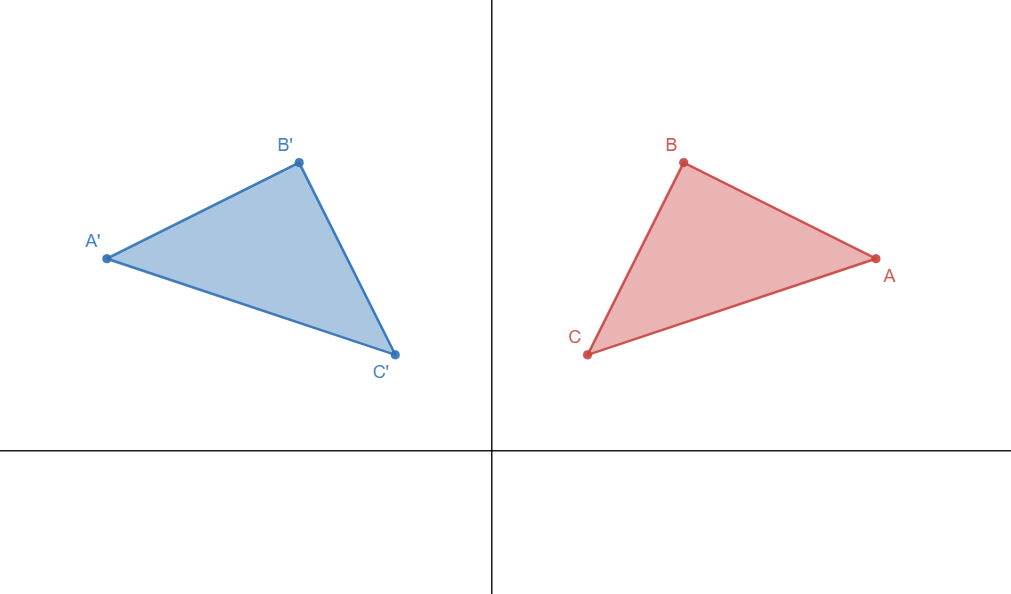
BLUE
Pre-image Image
Triangle ABC Triangle A'B'C'
The picture below appears to show a 180 degree rotation, but could also be described as a sequence of 2 transformations. Describe the sequence.
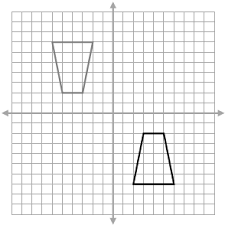
Reflection across the x-axis and then the y-axis
(Or vice versa)
Which construction (from our last test) do you need to perform to reflect an image across a line with your compass?
Perpendicular line to a point off the line/
Perpendicular bisector